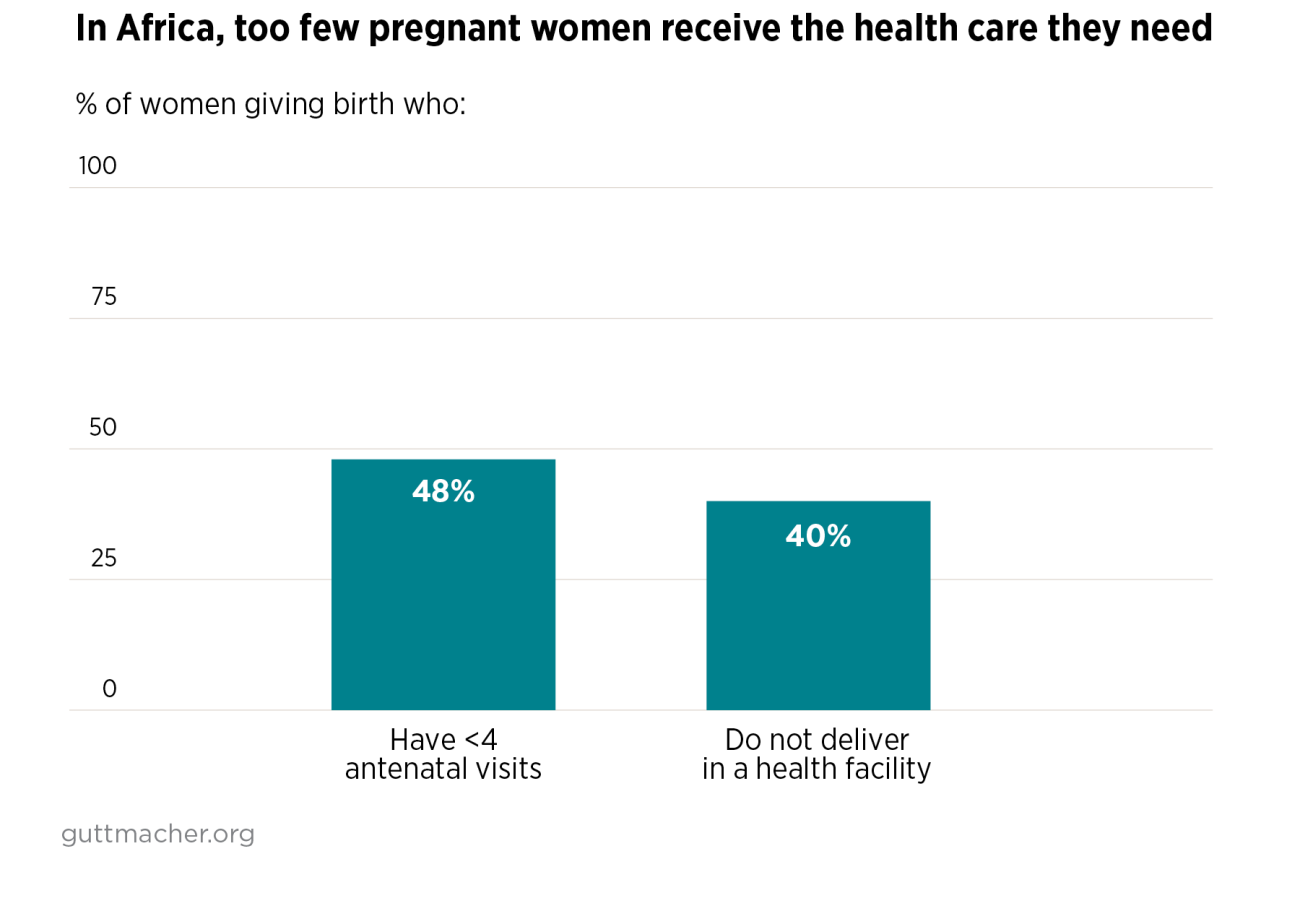In recent decades, most African countries have increased the availability of sexual and reproductive health care, yet many people still lack access to these essential services. This fact sheet presents evidence as of 2019 on the need for, impact of and cost of fully investing in maternal and newborn care among women aged 15–49 in 53 African Union member states.
The content in this fact sheet relates to the Addis Ababa Declaration on Population and Development in Africa Beyond 2014, which addresses the need for improved maternal and newborn health. The declaration recommends that governments commit to eliminating preventable maternal and neonatal mortality, ensuring universal access to prenatal and postnatal care and family planning, and enacting policies that promote the rights of individuals and couples to decide freely the timing and spacing of their births (Articles 37 and 41).
Unmet need for services
- Of the 43 million women in African Union member states who give birth each year, many do not receive the essential components of maternal and newborn care recommended by the World Health Organization.
- 48% of these women have fewer than four antenatal care visits.
- 40% do not deliver their babies in a health facility.
- 68% of those who need care for medical complications during pregnancy and delivery do not receive it.
